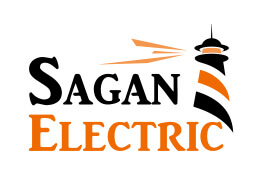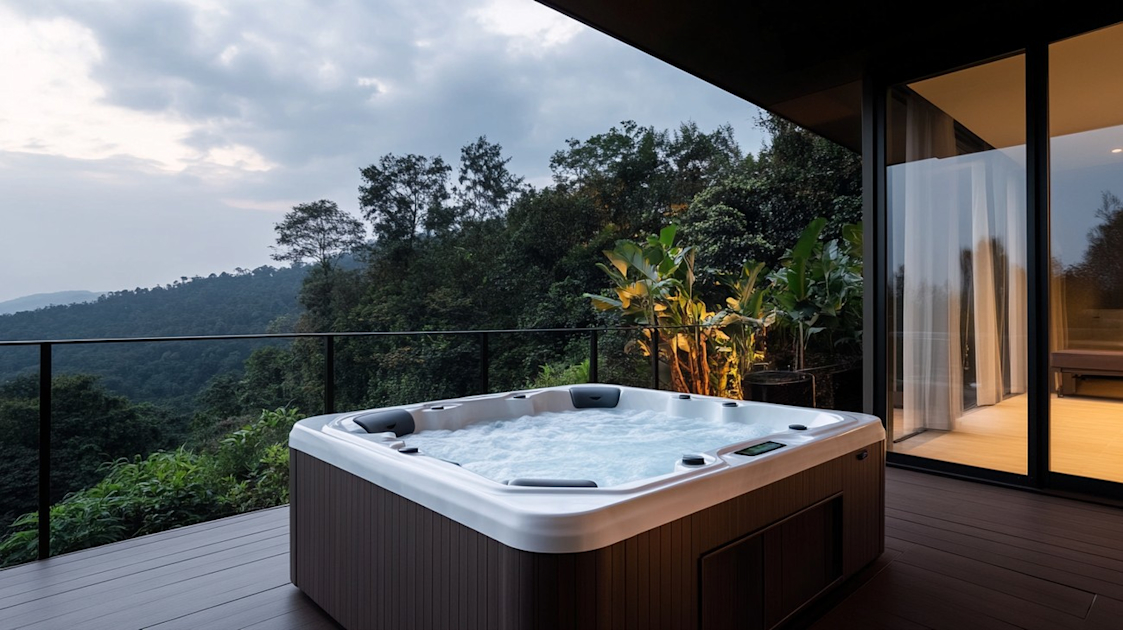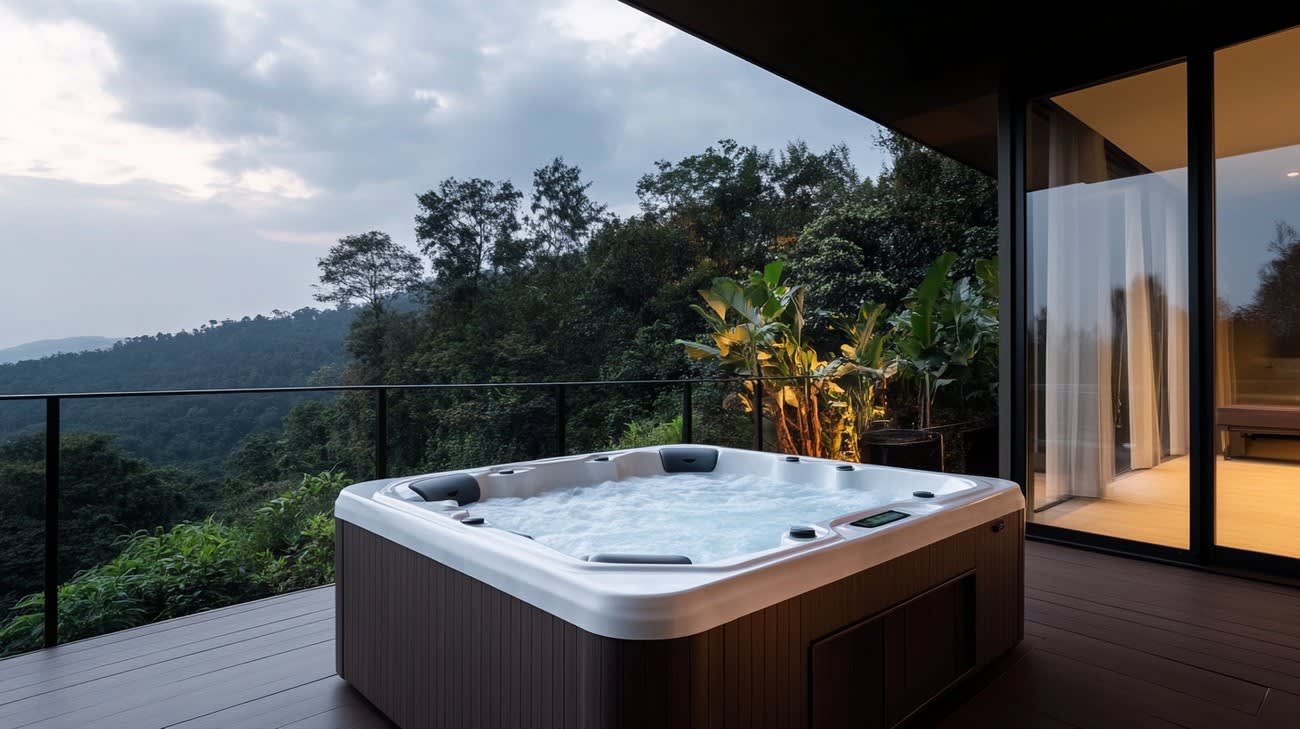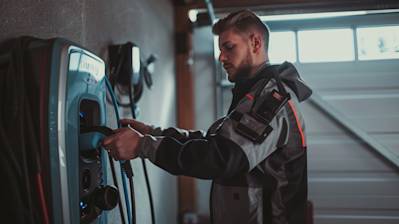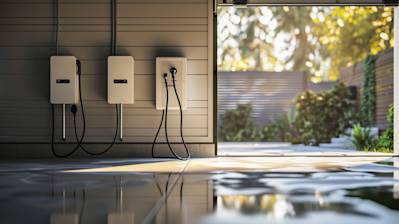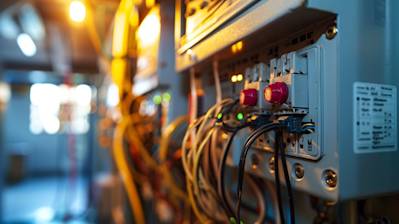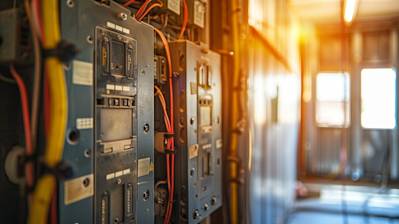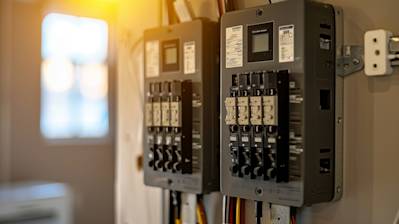Welcome to our comprehensive blog post where we will delve deep into the topic of hot tub wiring. As exciting as the idea of setting up a new hot tub in your space is, the safety and detailing of the wiring process are equally important. Setting up the hot tub involves a lot of intricate wiring, and we are here to provide you with all the details you need to know.
Understanding the Basics of Hot Tub Wiring
Before we start with the detailed steps and considerations for hot tub wiring, it’s essential to understand the basics. Your hot tub is powered by electricity, necessitating correct and safe wiring.
• Circuit Breaker: Hot tub wiring directly connects to your home's electrical system via a dedicated circuit breaker within your main service panel. • Voltage: Most hot tubs operate on 220-240 volts, considerably more than regular household appliances, with an amperage typically between 30 and 50 amps. • GFCI protection: The National Electrical Code (NEC) mandates a Ground Fault Circuit Interrupter (GFCI) be installed on all hot tubs to protect against electric shocks.
Essential Tools and Materials for Hot Tub Wiring
Here we provide a list of necessary tools you would need to wire your hot tub safely and effectively:
- Electrical wire
- Wire strippers
- Screwdrivers
- Conduit (a pipe that protects the wires)
- Glue (for the conduit)
Remember to choose the right set of tools that are in compliance with the local electrical codes.
Step-by-Step Guide to Hot Tub Wiring
Plan Your Wiring Route
Identify the best route for your electrical wire from the hot tub to your main electrical panel, ensuring compliance with local ordinances.
Install The Electrical Conduit
Install the conduit that will house your electrical wire, glue together pieces as needed. This forms a protective casing for your hot tub wiring.
Run the Wire
Next, run your wire through the conduit. Ensure sufficient wire length on both ends for the connection process.
Connect to the GFCI
The wire needs to be connected to the GFCI. This involves the proper organization of hot, neutral, and grounding wires.
Final Connections
The final connections involve terminating the wires at the hot tub control panel. Always follow the manufacturer's instructions for this step.
Verify with a Professional Electrician
For safety reasons and warranty validation, have a certified professional check your work, and make the final connection at the house mains.
Important Safety Considerations for Hot Tub Wiring
When handling hot tub wiring, safety should be your primary concern. Here are some points to remember:
- Always turn off all power from the main circuit before starting the wiring process.
- Never commence hot tub wiring during wet or damp conditions.
- Use rubber-bottomed shoes and avoid standing water.
Hiring a Professional for Hot Tub Wiring
While DIY enthusiasts might be tempted to wire their hot tubs, hiring a professional provides an assurance of safety and proficiency. Professional electricians are trained in dealing with 220-240 volts systems and are well conversant with local electrical codes.
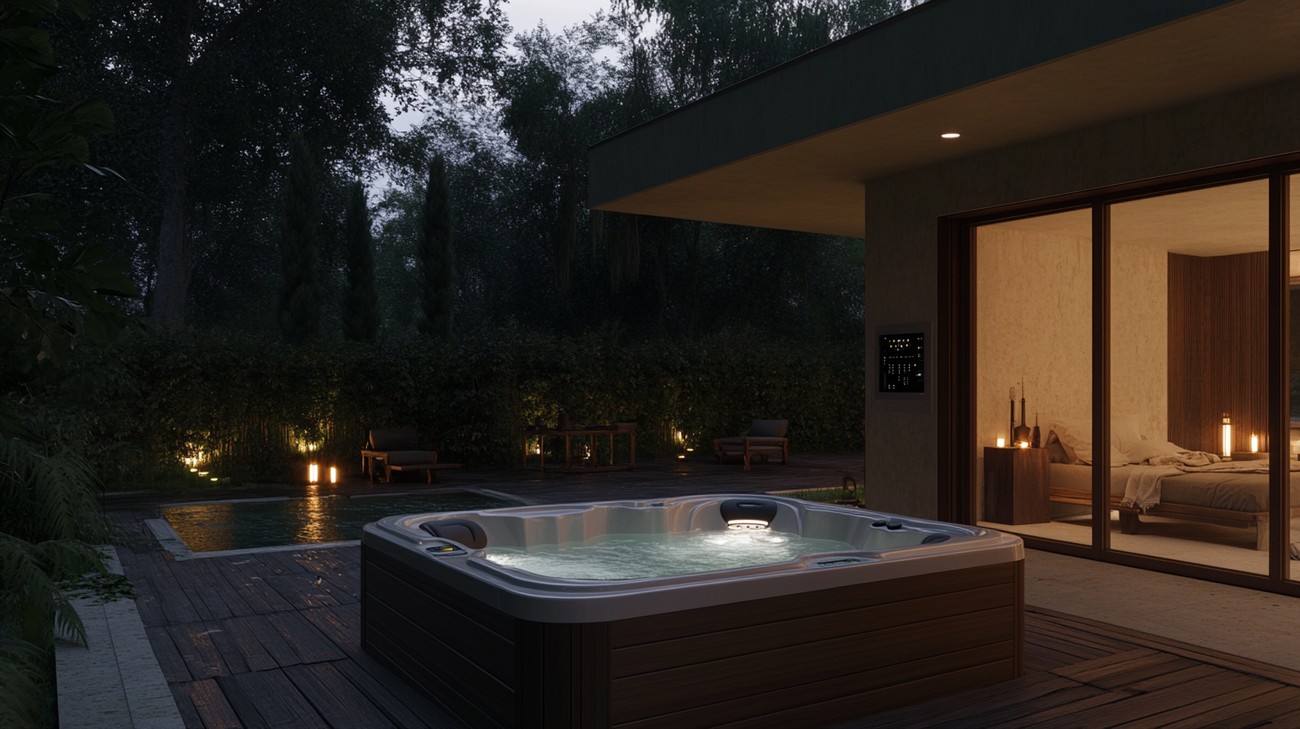
Frequently Asked Questions about Hot Tub Wiring
What Type of Electrical Connection Does a Hot Tub Require?
Hot tubs typically require a dedicated 240V circuit. This high voltage is required to power the multiple functions of a hot tub such as pumps, heaters, and lights. In specific terms, you'd need a GFCI-protected 50 or 60 amp circuit, recommended by the National Electrical Code (NEC). Always consult with a certified electrician for hot tub-specific wiring requirements.
Does It Matter Where My Hot Tub Is Located in Relation to the Electrical Panel?
Yes, it certainly does matter. Hot tub wiring regulations require the control panel to be a certain distance away from the hot tub, usually at least five feet. The further distance minimizes the risk of electrical accidents. Always ensure this code is followed during the wiring process to ensure optimal safety.
What Is a GFCI Breaker and How Is It Connected to Hot Tub Wiring?
A GFI or GFCI breaker, short for Ground Fault Circuit Interrupter, is a mandatory safety device for hot tub wiring. It trips the circuit if there's an imbalance between incoming and outgoing current. This is crucial in preventing electrical shock, especially for appliances like hot tubs that operate near water.
What Type of Wire Is Used in Hot Tub Wiring?
For most hot tubs, copper wire with THHN (Thermoplastic High Heat-resistant Nylon-coated) insulation is used. The size of the wire (gauge) depends on the specific amperage requirements of your hot tub. Generally, 6-gauge or 8-gauge wire is used for the two hot wires and the neutral wire, and a 10-gauge wire is used as the ground wire.
Why Does Hot Tub Wiring Involve a Disconnect Device?
A disconnect device, often a simple switch or circuit breaker, allows you to quickly and easily shut off the power to the hot tub. This is useful in case of emergencies or during regular maintenance and is a requirement stipulated by the National Electrical Code for any hot tub wiring setup.
Can I Use an Extension Cord for Hot Tub Wiring?
No, using an extension cord for your hot tub is a big no-no. Hot tubs require a lot of electrical power, far more than what an extension cord can handle. Overloading an extension cord can lead to overheating, electrical fires, or severe damage to your hot tub's components.
Do I Need to Install a Dedicated Circuit for My Hot Tub Wiring?
Yes, a dedicated circuit is necessary for the hot tub. Sharing a circuit with other appliances may lead to frequent tripping of the circuit breaker due to overload. The separate dedicated circuit ensures that your hot tub receives the right amount of power it needs to operate safely and efficiently.

Pros of Hot Tub Wiring
Safety
Electric Shock Prevention
One of the major pros of hot tub wiring is safety. Proper wiring significantly reduces the risk of electrical shock. An electric shock can be fatal, particularly when water is involved. Therefore, correctly wiring your hot tub is crucial to ensuring everyone’s safety.
Grounding
Adequately wiring your hot tub includes grounding the electrical components. Grounding reduces the risk of electric shocks by ensuring that any stray current is sent directly to the ground, rather than to a person touching the hot tub.
Longevity of the Hot Tub
Reduced Risk of Electrical Damage
Another pro of hot tub wiring is that it lengthens the lifespan of your hot tub. Improper wiring can lead to overloading of circuits, damaging your tub’s electric components over time and leading to costly repairs or replacements.
Prevention of Corrosion
Proper wiring also prevents damage due to corrosion. Particularly, if a hot tub is not adequately grounded, electrolysis can take place that leads to the erosion and eventually break down of metal components in the hot tub.
Efficiency
Energy Efficiency
Good wiring also translates to energy efficiency. This is primarily because the hot tub wiring will be done to handle the exact voltage needed to efficiently operate the hot tub. This will not only save you money on your energy bills but also reduce energy waste.
Enhanced Performance
When a hot tub is well-wired, it performs at its optimum. The controls respond effectively, the jets and heaters work as they should, and you get to enjoy your hot tub experience with no hitches.
Cons of Hot Tub Wiring
Complexity
Requirement for Professional Expertise
One significant con of hot tub wiring is its complexity. If you are not an electrician, you might struggle with the wiring. Furthermore, hot tub wiring often requires a professional electrician and this could increase overall costs. You could theoretically wire it yourself, but any mistakes could be costly and dangerous.
Safety Regulations
Building Codes and Permits
Hot tub wiring often falls under specific building codes. You may need to obtain certain permits before starting the wiring project. This could be time-consuming and may also involve some costs.
Power Considerations
High Voltage
Hot tubs operate on a higher voltage than most home appliances. This can lead to potential hazards if not handled carefully. It can also add complexity to the wiring process and increase the risk of electrical damage if you don't follow the correct steps or aren't familiar with dealing with high voltage appliances.
Increased Energy Consumption
While a well-wired hot tub is energy-efficient, the fact remains that hot tubs generally consume a significant amount of power which can cause a spike in your utility bill.
Cost Implications
Hot Tub Wiring Costs
Whether it's hiring a professional or buying the necessary equipment and materials, hot tub wiring has certain cost implications. If you want high-quality work and safety assurance, these expenses are unavoidable and could add a hefty amount to your hot tub installation.
Repair and Maintenance
Over time, hot tub wiring can wear and tear, requiring repair or replacement. Occasionally, the wiring may also need to be inspected and tested to ensure it is operating safely, all of which add to ongoing maintenance costs.

Myths and Misconceptions about Hot Tub Wiring
The process of hot tub wiring involves an array of complex operations, which if not handled correctly, could lead to malfunctions or dangerous situations. Despite its complexity, many misconceptions are frequently associated with hot tub wiring. These myths often undermine safety protocols, disregard the importance of technical knowledge, and underestimate the potential risks involved. This section aims to debunk these myths and thereby promote safe and efficient wiring for hot tubs.
Myth 1: No Need for a Qualified Electrician
Misconception: Anyone Can Wire a Hot Tub
Some people believe that hot tub wiring is as simple as wiring a regular household appliance. This could not be further from the truth. Hot tubs require a dedicated 220-240V electrical supply, meaning they are not simple plug-and-play devices and require significantly more expertise to install.
The Facts
Wiring a hot tub involves dealing with vital elements like water and electricity, which can be hazardous when combined. It requires a clear understanding of electrical protocols, codes, and safety measures. Hence, only a licensed and experienced electrician should be entrusted with this task.
Furthermore, improper wiring could lead to severe damage or malfunctioning of the hot tub and can result in costly repairs down the line.
Myth 2: The Grounding Wire Isn’t Necessary
Misconception: The Hot Tub Comes with a Built-in Grounding System
Grounding in hot tub wiring is often overlooked due to a common misconception that hot tubs come with a built-in grounding system, eliminating the need for an external grounding wire.
The Facts
A grounding wire provides an emergency path for electrical current to follow in case of a short circuit, thereby preventing potential electrocution. Even if a hot tub has built-in grounding features, a dedicated grounding wire must still be included during wiring. Neglecting this step can make the hot tub a dangerous source of electricity, potentially leading to serious injury or even death.
Myth 3: All Hot Tubs Require the Same Wiring
Misconception: Universal Wiring Guidelines Apply to All Hot Tubs
Many people operate under the assumption that hot tub wiring guidelines apply universally to all makes and models. This myth often results in incorrect, unsafe, or inefficient wiring setups.
The Facts
Different hot tub models have different power requirements and specified wiring guidelines. These distinctions must be accounted for during setup, from wire size to the type of circuit breaker used. Using the wrong specifications can lead to sub-optimal performance or significant safety risks.
Myth 4: DIY Wiring is Cheaper
Misconception: Doing the Wiring Yourself Will Save You Money
Given the perceived complexity of hot tub wiring, some individuals wrongly believe that they can save on costs by doing it themselves or by hiring an unqualified handyman.
The Facts
In reality, incorrectly wired hot tubs can lead to expensive repairs and replacement parts, not to mention potential hazards. Considering the safety risks associated, DIY wiring can turn out to be significantly more costly in terms of possible accidents, insurance difficulties, and regulatory non-compliance penalties.
Myth 5: Wiring is a One-Time Task
Misconception: Once Wired, the Hot Tub is Good to Go Forever
This pervasive myth stems from the erroneous belief that hot tub wiring, once complete, remains in perfect condition indefinitely, with no need for further attention or maintenance.
The Facts
Like any electrical system, hot tub wiring is subject to wear and tear and environmental factors. Regular maintenance, including inspections of wire insulation and connectors, is crucial to ensure efficient functioning and safety.
Debunking these myths about hot tub wiring is crucial in ensuring safety and longevity for your hot tub, as well as protecting its overall value. Always consult with a professional, adhere to local safety codes, and beware of errant beliefs concerning this critical aspect of hot tub ownership.
Summary
As you can see, hot tub wiring is not a task to be taken lightly. Engaging a professional electrician with adequate knowledge about local codes and specific requirements could save you from potential hazards. After all, ensuring safety and efficient performance is crucial when it comes to electrical setups, especially for appliances that mix electricity and water, like your hot tub.
Hot tub wiring comes with its own set of challenges. From choosing the right wire gauge to understanding the complexity of grounding and bonding, there's a lot to get your head around. It pays to spend time understanding these requirements or, better yet, entrusting the job to professionals. Regardless of your choice, be sure to prioritize safety above all else.
In the end, hot tub wiring might seem complicated, but with the right help and approach, it doesn't have to be a daunting task. Whether you’re a DIY enthusiast or someone who prefers to let professionals handle intricate tasks, it is crucial to understand and respect the role wiring plays for hot tub safety and functionality. Always remember, it's better to get it right the first time than to deal with potential ramifications and consequences later.
About Sagan Electric
Sagan Electric is your reliable, go-to electrical services provider in Sacramento, CA. Boasting a stellar track record stretching back more than two decades, we're all about keeping things casual, convenient, and ultimately, powered! We specialize in a broad range of residential and commercial electric services. Our team comprises of seasoned and friendly professionals who are deeply committed to fulfilling your electrical needs. At Sagan Electric, we're proud to deliver top-quality services while keeping your safety our highest priority. Connect with us today, because we believe that with electricity, anything is possible!
Tags: Electrical, Installation, Safety,
